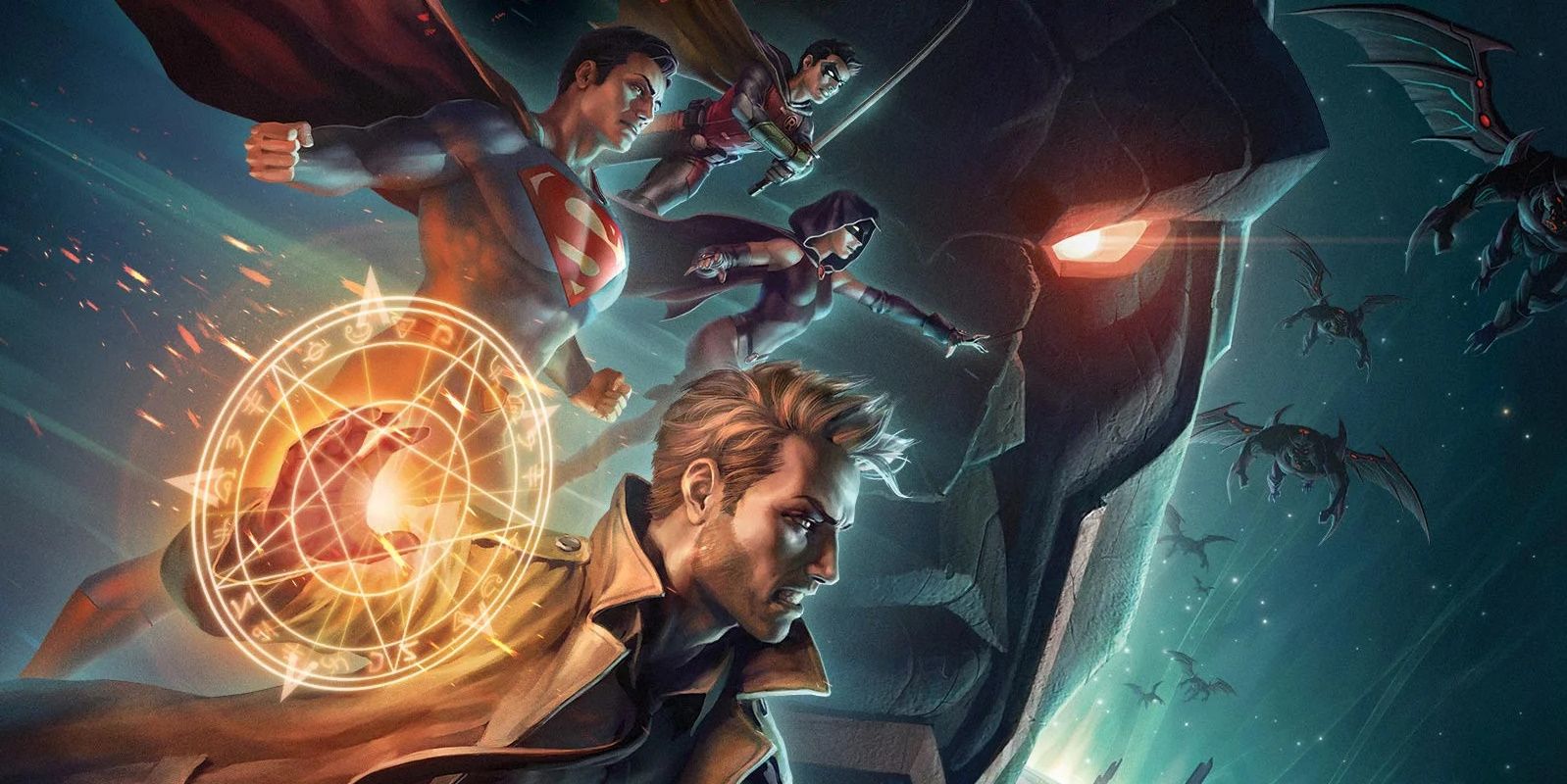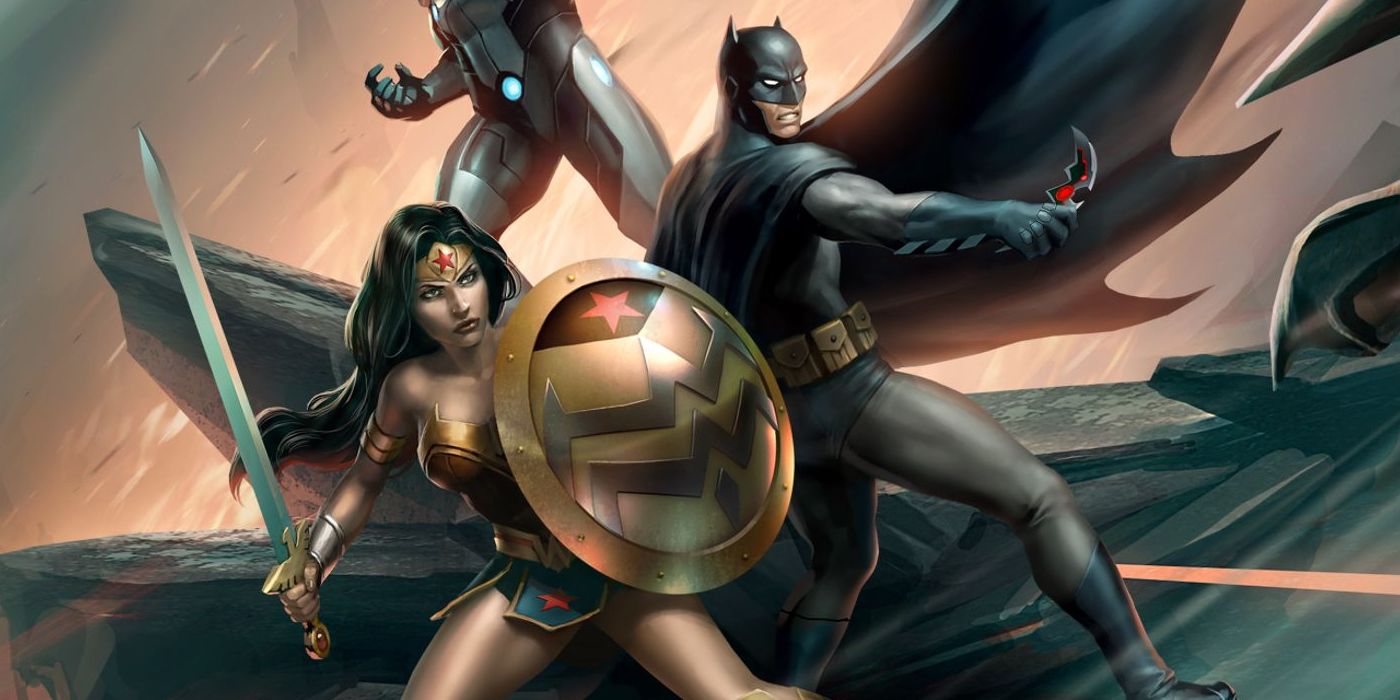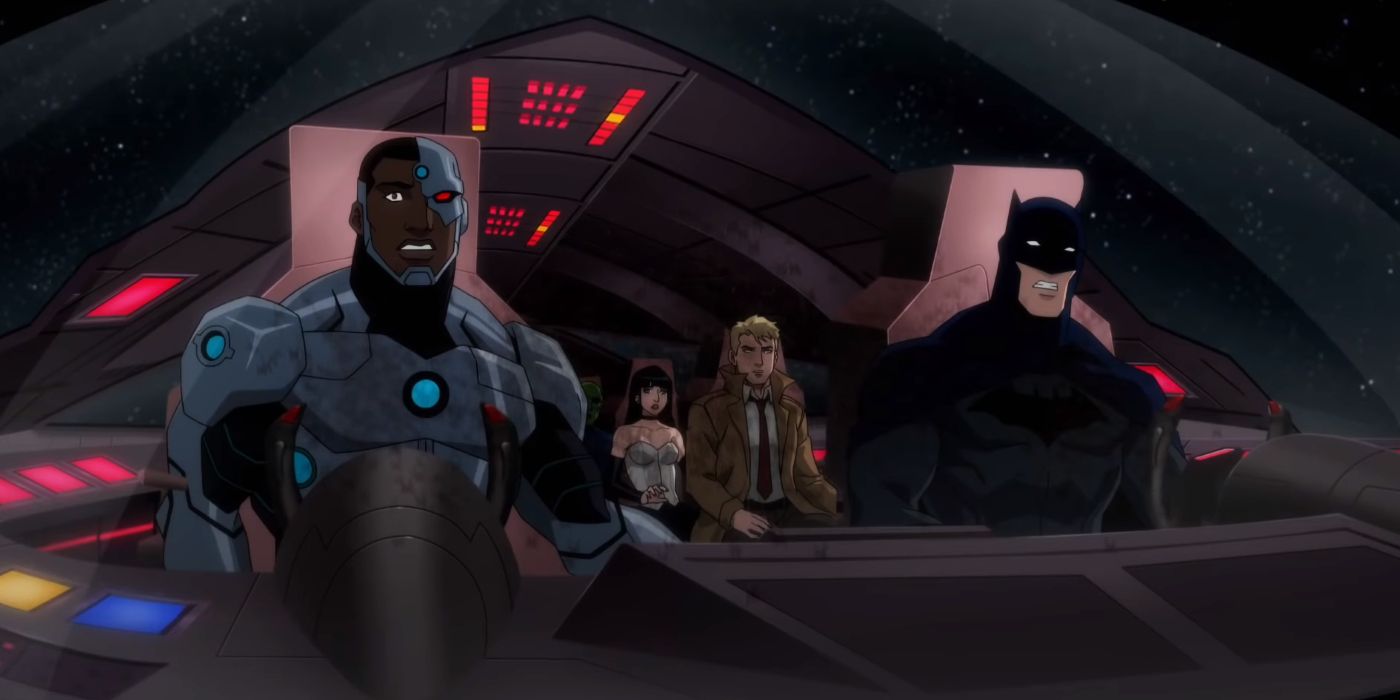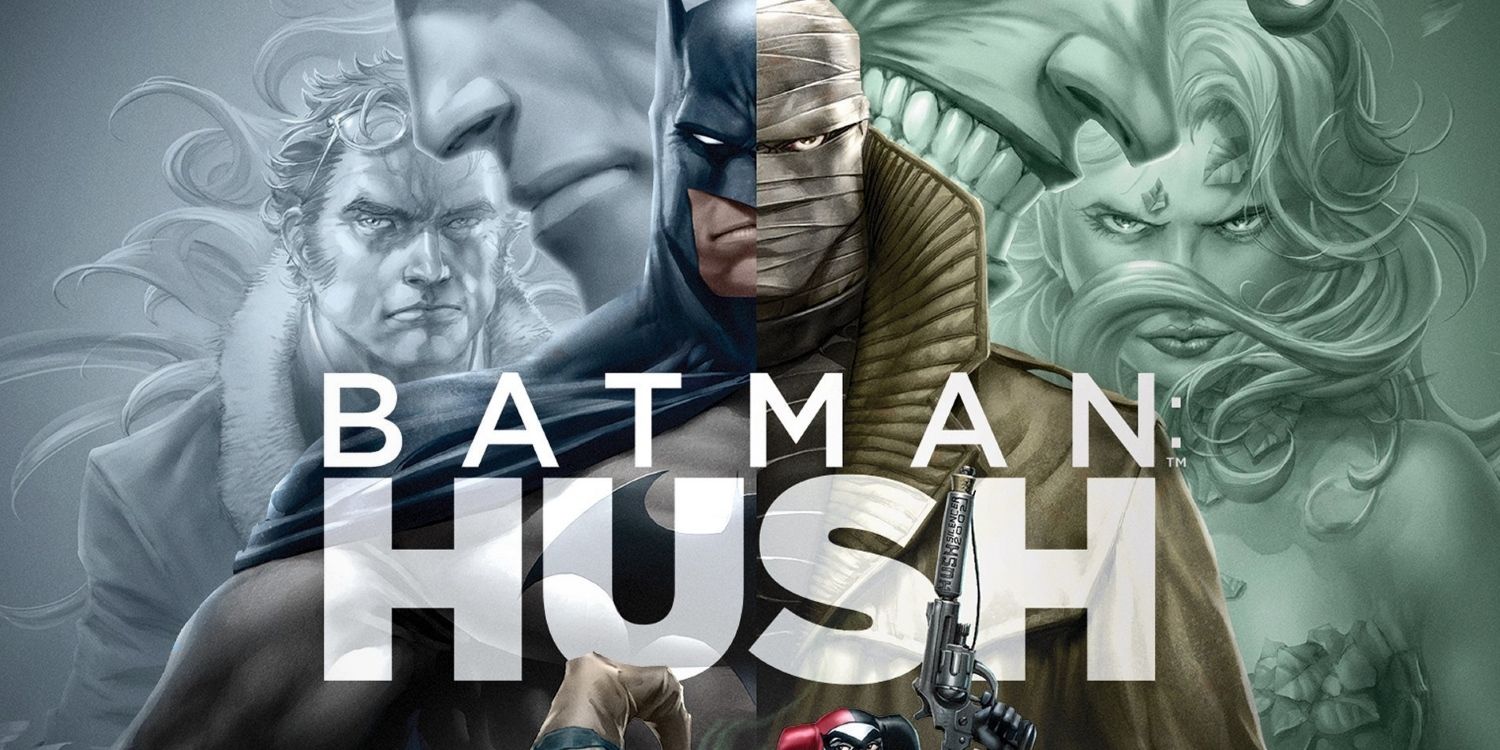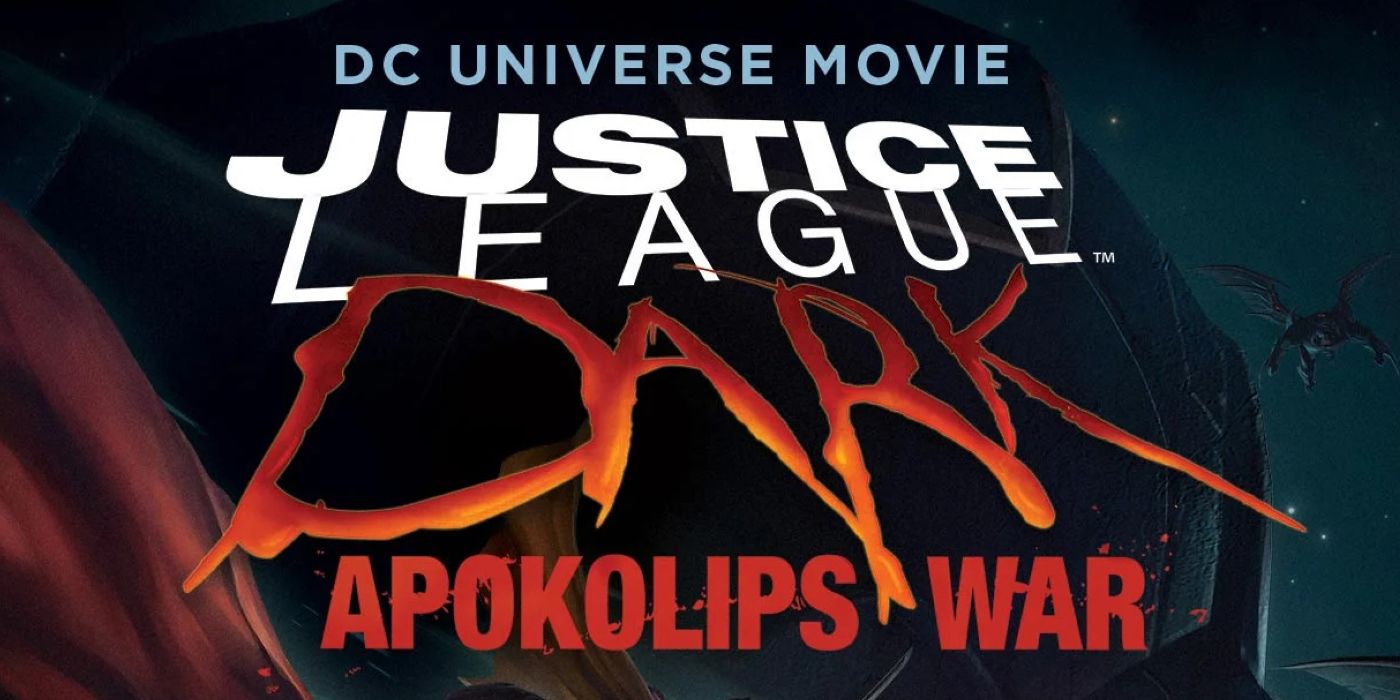The launch of Justice League Dark: Apokolips War has arrived, and with it comes a grand event years in the making, ever since 2014's Justice League: War created a brand new animated shared universe. It's a challenge unlike any the assembled Justice League heroes have faced before -- and for the fans, a movie promising to show those same iconic characters in a new (likely less unbeatable) light.
After more than a dozen movies in this Justice League continuity, the dark lord of Apokolips, Darkseid, has returned to claim Earth once more. What he gets is a 'big finish' that lives up to the spectacle, finally getting his advantage over the heroes, leaving the unlikeliest rabble of heroes behind as humanity's last line of defense. With Apokolips War, actor Jason O'Mara (Agents of SHIELD) notches his eleventh feature as the Dark Knight -- second only to the legendary Batman: The Animated Series' Kevin Conroy. And to find out more about this long-awaited sendoff, Screen Rant spoke with O'Mara about donning the animated cape and cowl one last time. The full interview can be found below.
SR: Thank you for taking the time to talk to us about the film, how are you doing?
Jason O'Mara: Yeah, doing okay, doing okay. Trying to stay sane during these crazy times, you know. I think it's really important to build a morning routine and have a set amount of things to do every day, even if they're just small things, to keep yourself sane. I talk about a lot of this stuff, I'm an ambassador for the men's charity Movember and I talk about a lot of this stuff on the website. Particularly guys. You know, guys, we struggle during these times because we tend to isolate anyway. Put on a happy face, pretend everything is cool. I talk about this on the Movember website, so if anyone wants more information or tips on how to 'survive the apocalypse,' they can go there.
Well speaking of sane, you have now voiced Batman in more feature adaptations than everyone but Kevin Conroy himself.
Wow.
Has that sunk in? Or is that something that can ever sink in?
It's hard to get my head around that. Because you only take it one film at a time, and I always thought that, after any of the films I've recorded, that it would be my last. Turns out this one is my last, most likely. But yeah, it's crazy. It's crazy. I mean there's been sixteen films in this particular series, this continuity of films, and I've done eleven of them. I find myself very honored, privileged, and grateful that I've been been able to maintain the continuity of playing the same character in each film. Obviously Batman evolves and each film is different. Sometimes you get a Batman standalone movie like Batman: Hush, or a Batman-centric movie like Son of Batman, Batman vs. Robin, Batman: Bad Blood. But sometimes you also get ones like The Death of Superman which is obviously more about Clark Kent than about Bruce Wayne. But we found a way to make sure that I stayed involved as the character throughout this series. Which I'm really proud of, and also really grateful for. I'm really grateful to have been given the opportunity. Because every actor loves long form storytelling. It gives you a chance to build a character, and carry the experiences the character has had previously with them, as the series progresses. I think it also deepens the viewer's understanding of the character, and appreciation for what he's going through.
I also think this version of Batman, the fact that he's a father to Damian defines this particular Batman story. And in so doing also defines my own performance of Batman and Bruce. Because I'm a father too, in real life, and my son is probably around the same age as Damian has been throughout this. So I was able to bring, I suppose, a degree of authenticity and experience to it. Which I think helped to carve out my own particular version.
What you say about carving your own version is interesting, because I have to think when you first start this process, and have one film in front of you, you're probably as cautious as possible in wanting to do justice to the character.
Oh yeah.
But as you actually are able to create your own version, your own performance, that has to change at some point.
Yeah, it's bound to change organically. You have no choice. Because it's also not just my performance, it's the scripts, the writers, the producers, and the directors who are pushing the character into these areas, and putting them in these situations. So it's bound to evolve. And for my own part as an actor, I think I came to this with some degree of trepidation because there have been so many great performances of this character by so many great actors over the years, and you're bound to be influenced by those. So I tried to, best I could, forget about anything I had heard previously or seen and be as authentic as I could to myself. Which is why I've leaned heavily on the fact that he's a father, that to me defines him.
In terms of my own approach, I feel like it has gotten easier as the series has gone on. It should get easier when you have more opportunities to play the character. I look back on Justice League: War, which was my first, and I hear a bit of stiffness and reluctance. Still trying to feel my way through it, you know? Whereas you look at something like Batman: Hush and I feel like the performance is more fully developed, it's more rounded vocally. Subtle but distinct differences between Bruce and Batman. So there has been a natural evolution for the character through story, and also a natural evolution for the character through my own experience and approach to the process.
I know that actors who go from stage acting to films or television, there is an adjustment to not having the immediate energy of a live audience to feed off or react to. For voice acting, that seems like another level higher, where you're confined to a room and a microphone. Basically performing for a handful of people. For an actor like yourself, can that ever feel 'normal' or natural, or is that always a different kind of challenge? especially when you're taking a character through a journey of his own.
I think two things. First of all, I do bring all that stage acting experience to any role, because you have to imagine what it's like for any audience to see something for the first time. What they might find funny, what they might sort of lean forward and be interested in. Because you can feel an audience do that in theater. Or sit back and sort of watch the whole spectacle. I think it's really important to have stage experience as an actor, I think it does inform your performance. By the same token, with voice acting or any element of performance, there is a degree of imagination involved, you know? You have to use--some actors call it the theater of the mind, but you have to use your own imagination to put yourself in a situation that you would not otherwise be in. You're not really Batman flying through the air on a grappling hook, and punching bad guys. But you do have to kind of put yourself into that position even though you're standing in a dimly lit room in front of a microphone.
So I think experience is important, getting as much experience as you can really helps inform a performance. And also using your imagination, let that be your creative guide. Thirdly, and not least, I rely on great voice directors like Wes [Gleason] and Andrea [Romano], who help guide you through it. And during the first session you don't have any visuals, right? There's no movie. You've just got a script and a microphone, so you have to use your imagination and direction to figure out what is going on moment to moment. Whether this is a quiet scene, or there's a lot of explosions going on, which will obviously affect how to deliver the lines. Whether something is comedic, or romantic, or just badass [laughs]. You've got to figure all that stuff out. Then as you come back for the second and third sessions there's usually a little more animation done. Sometimes even just for ADR at the end, the entire film is assembled. So that's a lot different.
As you said, with this likely your last time as Batman--you've been to Comic-Con, you've seen the fans. Are you left with any overall feelings about the role?
Oh, the overwhelming happy memories are when we take these movies to the big cons, WonderCon, Comic-Con. And show them to up to five thousand fans who can't wait, and have been in line all morning and all day waiting for this. The panels that we held in front of the fans, sometimes before but usually after the film is screened, and you can feel their excitement and them considering what they've just witnessed. That's what I'll take with me, yeah. You know, riffing off another actor on a panel. Then watching the film in front of so many people and hearing them all laugh at the same time, all 'ooh' and 'ahh' at the same time. Just a fantastic experience, all these experiences that I will never forget. So it's with a sense of excitement and sadness that we're going out with this film in particular. It's a great film. An epic conclusion to a fantastic series. But also sad that this is it.
Justice League Dark: Apokolips War is available on digital platforms now, with a Blu-ray release coming May 19th.

